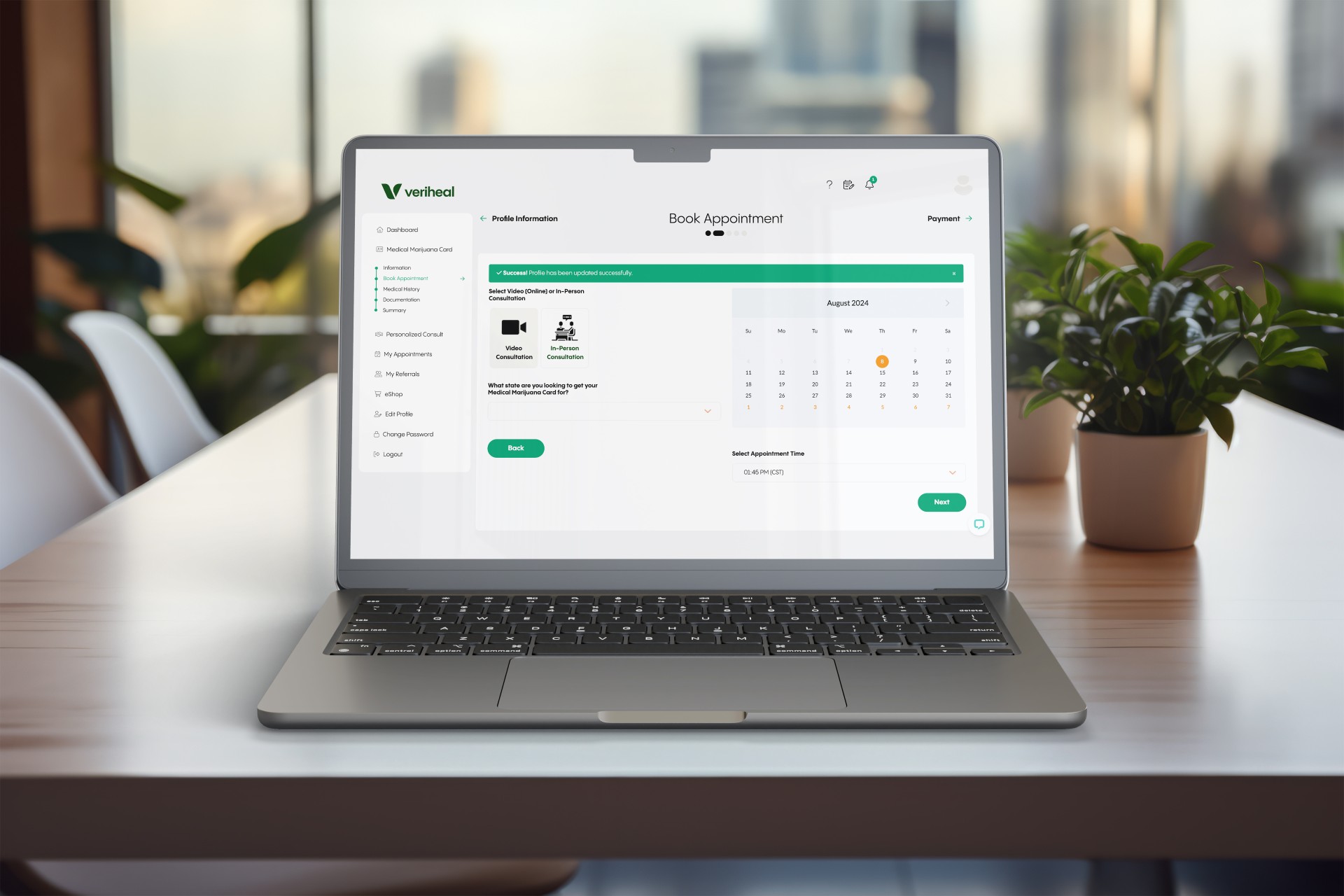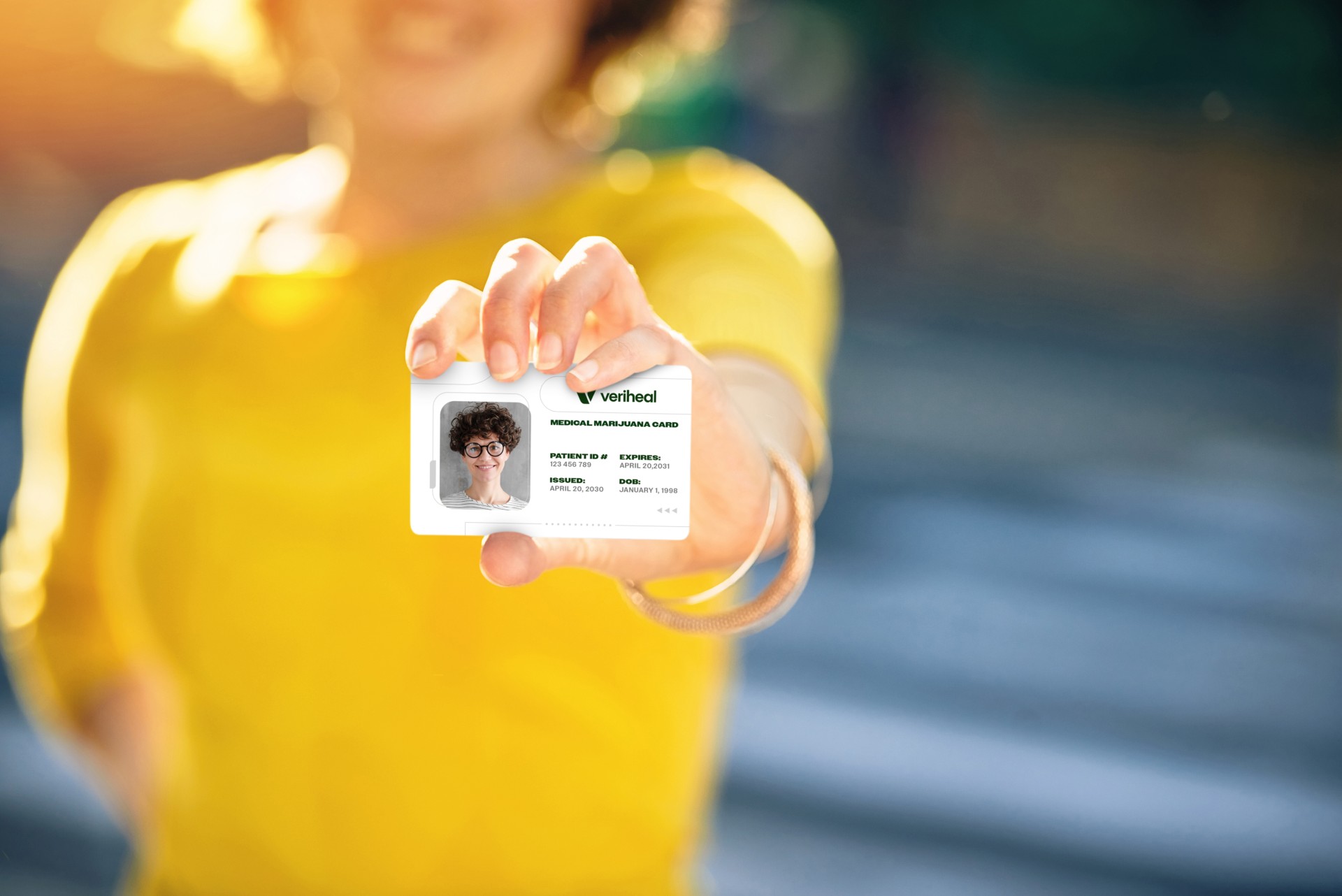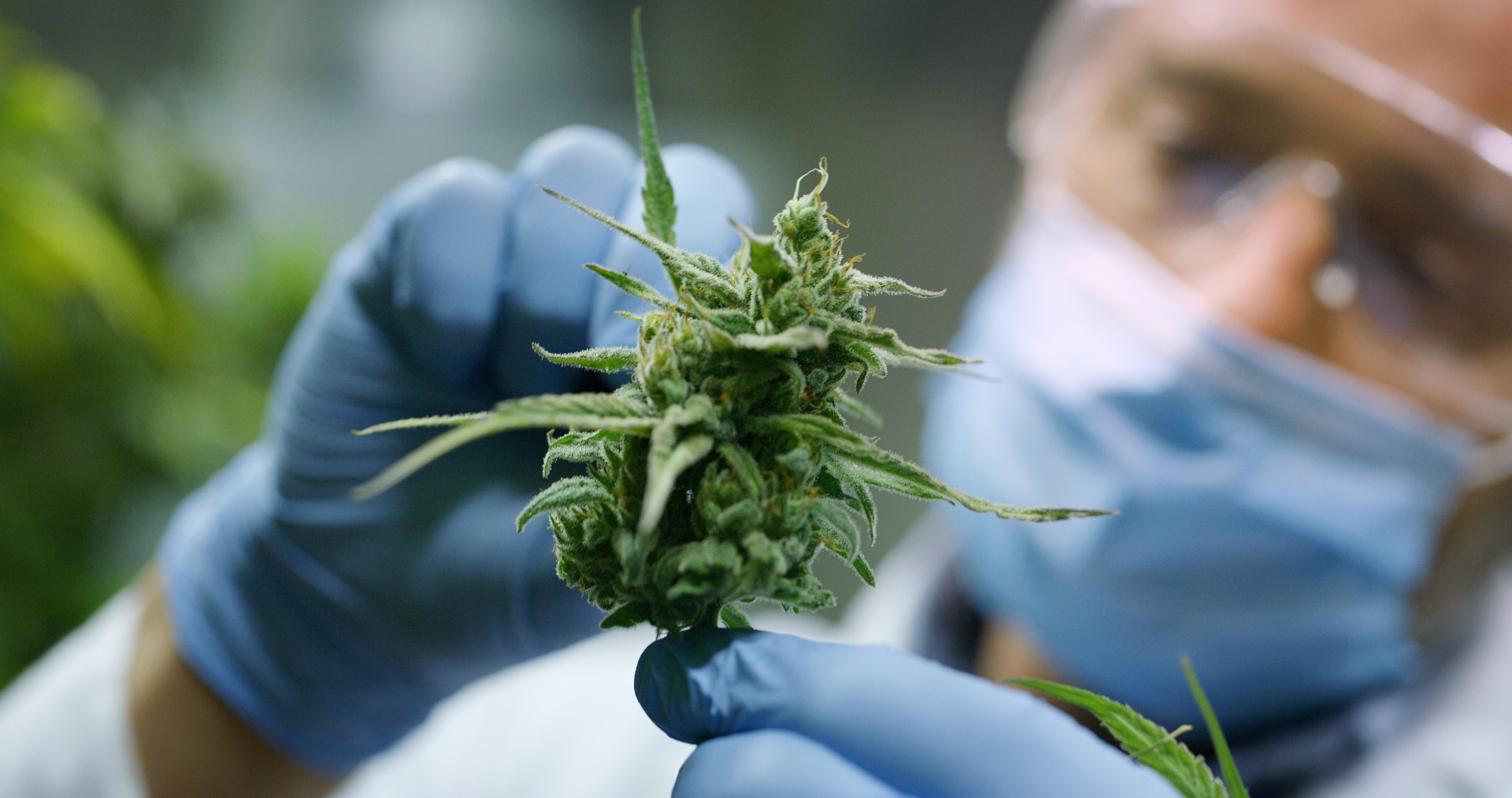First, you’ll need to complete and submit the patient registry application form with Vermont’s Medical Cannabis Program (MCP). Submit a valid Vermont driver’s license or Vermont identification card with a digital, color photograph of yourself to establish proof of residency.
Designate a dispensary and caregivers, if applicable. A registered patient who is younger than 18 is required to have one (1) registered adult caregiver and may designate an additional registered adult caregiver.
Next, provide the physical address and specific location of the facility for personal cultivation if you plan to grow your own cannabis. Registered patients may not cultivate cannabis if they designate a dispensary.
Provide a Qualifying Condition Verification Form that has been completed by a health care professional (such as the one provided by Veriheal). The statement must show evidence that a bona fide health care professional-patient relationship exists, or that the debilitating medical condition is of recent onset.
Finally, pay a $50 non-refundable fee for a registry identification card.
The state has up to 30 days to review and approve your application, after which time they will mail you your card.












